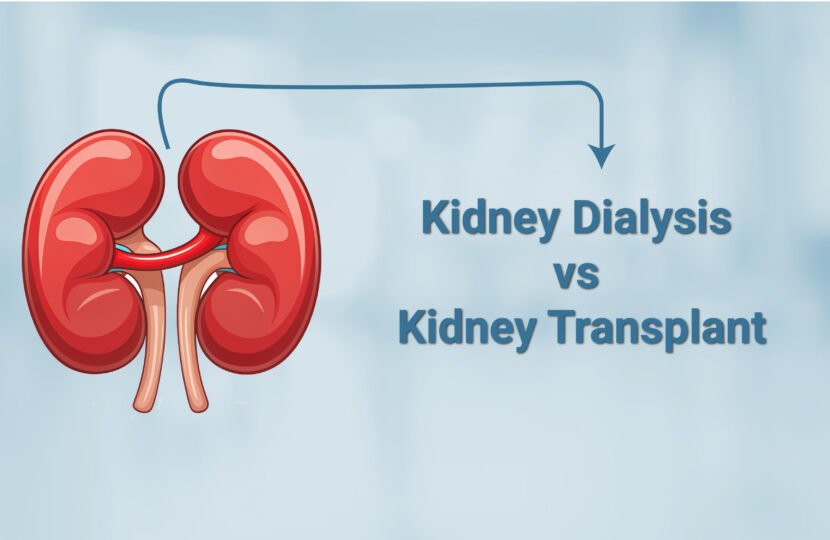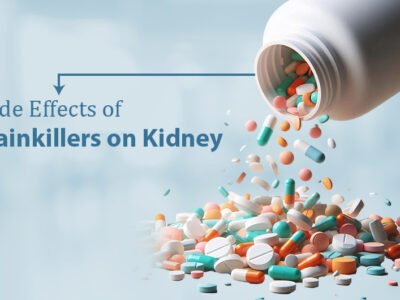Kidney failure is a serious medical condition that calls for prompt, efficient treatment if the patient is to have any chance at life. There are two major kidney failure treatments: kidney dialysis and kidney transplant. Knowing the differences between these treatments for kidney failure equips patients with the knowledge necessary to make wise decisions regarding their health. In this blog, we try to provide an all-rounded argument of dialysis vs. kidney transplant by describing the benefits versus risks for both and how they can alter patients’ lives.
Understanding Kidney Failure
Kidney failure results when the kidney can no longer filter waste and excess fluids from the blood. It can either be acute or chronic, while chronic kidney disease refers to progressive destruction of the kidney function over some time. Kidney failure may lead to serious health complications if not treated, and the condition may even result in fatality. As such, effective treatments for kidney failure are very important.
Kidney Dialysis
Dialysis is a medical procedure that aims to copy the functions of the kidneys in purifying waste products and excess fluids from the blood. There are two types of dialysis: hemodialysis and peritoneal dialysis.
Hemodialysis
Hemodialysis is conducted with the aid of a machine that filters the blood outside the body. The patient’s blood will be drawn through a needle and then it will pass into a dialyzer which acts as an artificial kidney. This process usually takes place three times a week for about four hours per session.
Peritoneal Dialysis
Peritoneal dialysis uses the lining of the abdomen, called the peritoneum, as a filter for blood. A special solution is injected into the abdominal cavity via a catheter and absorbs waste products leached from the blood, together with excess fluids. After some time, the solution is drained out and refilled. This type of dialysis can be done at home, manually during the day or automatically at night with a machine.
Kidney Transplant
A kidney transplant is a surgical procedure for placing a healthy kidney into a patient with kidney failure. It can originate from either a living or deceased donor. The new kidney does the work of the failed kidneys, thus enabling the patient to lead a near-normal life without needing dialysis.
Dialysis vs. Kidney Transplant
Comparing Survival Rates and Life Expectancy
It has been demonstrated that, compared to dialysis patients, kidney transplant patients generally have a greater survival rate and life expectancy. In most cases, transplant recipients can have better health, reduced risk of cardiovascular diseases, and improved quality of life.
Quality of Life
Probably the greatest advantage of a kidney transplant is improved quality of life. Those patients after successful transplantation can live a more active and normal life. They are not limited by frequent and time-consuming dialysis, which gives greater opportunities to organise daily activities, trips, and work.
Compared to dialysis, it is restrictive and demanding. Frequent treatment significantly interferes with personal and professional life. The patients under dialysis mostly experience more tiredness and other physical limitations in most cases.
Cost and Financial Considerations
Kidney failure treatments can be very costly. Dialysis is also costly, primarily in-centre hemodialysis, which requires continuous treatment. A transplant may be expensive at first but eventually is cheaper than the cost of medical attention after a transpdialysis.
Benefits of Kidney Transplant
The benefits of kidney transplants, therefore, extend beyond survival rates and quality of life improvements. Some major advantages include the following:
Improved Health Outcomes
Transplant patients often fare well with improved health outcomes, lower risk of heart disease, well-controlled anaemia, and fewer infections compared to patients on dialysis Dietary Freedom
The dietary restrictions for dialysis patients are quite severe, and they have to be rigidly adhered to if the treatment is to remain effective. Generally, post-kidney transplant patients have much more freedom when it comes to what they eat and drink, which can result in major gains in quality of life and nutritional status.
Psychological Well-being
Kidney failure has to be endured throughout life. Therefore, the liberty and health that come as a result of the success of a kidney transplant brings substantial improvement in psychological well-being, thus decreasing the depression and anxiety levels common amongst dialysis patients.
Risks and Challenges
Dialysis Risks
Though life-saving, it is not without its risks. Complications can include low blood pressure, infections, muscle cramps, and blood clots. Other health complications, including bone disease and cardiovascular problems, can result from long-term dialysis. Transplant Risks
In and of itself, kidney transplant surgery is risky, with possible complications from the surgery, rejection of a new kidney, and side effects from immunosuppressive medications, which are required to prevent rejection. Also, finding a suitable donor can take a long time and is not at all guaranteed.
Making the Choice
Dialysis versus a kidney transplant is determined by the general health and age of the patient, availability of a donor, and personal preference. Other considerations in making an informed decision include the following:
Health and Age
This therapy is most suitable for patients who are in younger age groups and healthier. This is because the lifetime of such a patient is long; hence, long-term benefits can be achieved. In contrast, dialysis may be a safer option for old patients or those with acute health problems.
Availability of Donors
The availability of a suitable donor is the most important consideration for a kidney transplant. The waiting time for patients having living donors to procure organs from would be considerably less when compared to those who rely on deceased donor transplants, and they would perhaps derive better outcomes.
Lifestyle and Personal Preferences
Patients should consider what each modality will bring to their lives regarding lifestyle. The patients who want little medical intervention and independence prefer the kidney transplant while others prefer the routine of the structured dialysis.
Conclusion
The choice of modality to follow, dialysis versus kidney transplant, is a very personal choice that each patient needs to decide based on the benefits against risks of each modality to treat kidney failure. While dialysis is a crucial and lifesaving therapy, the supremacy of kidney transplants concerning survival rate, quality of life, and health outcomes for patients makes it an attractive option. In the final analysis, the choice depends on the peculiarities of every case, health condition, and personal taste. The consultation of Nephrologists in Ahmedabad, such as Dr Ravi Bhadania, coupled with a view of all factors, will help such patients make the most informed decision for their long-term well-being. In these regards, the differences between the two treatments for kidney failure—dialysis vs. kidney transplant—can create a better decision by patients about their options and lead to a better quality of life and health in the long term.


